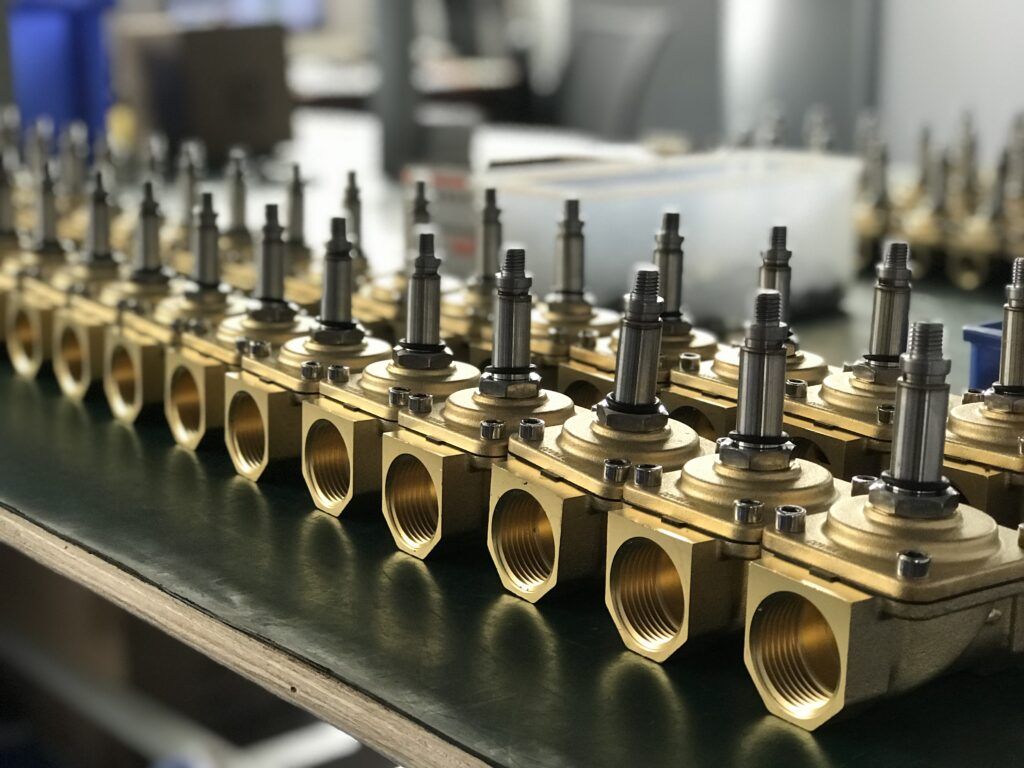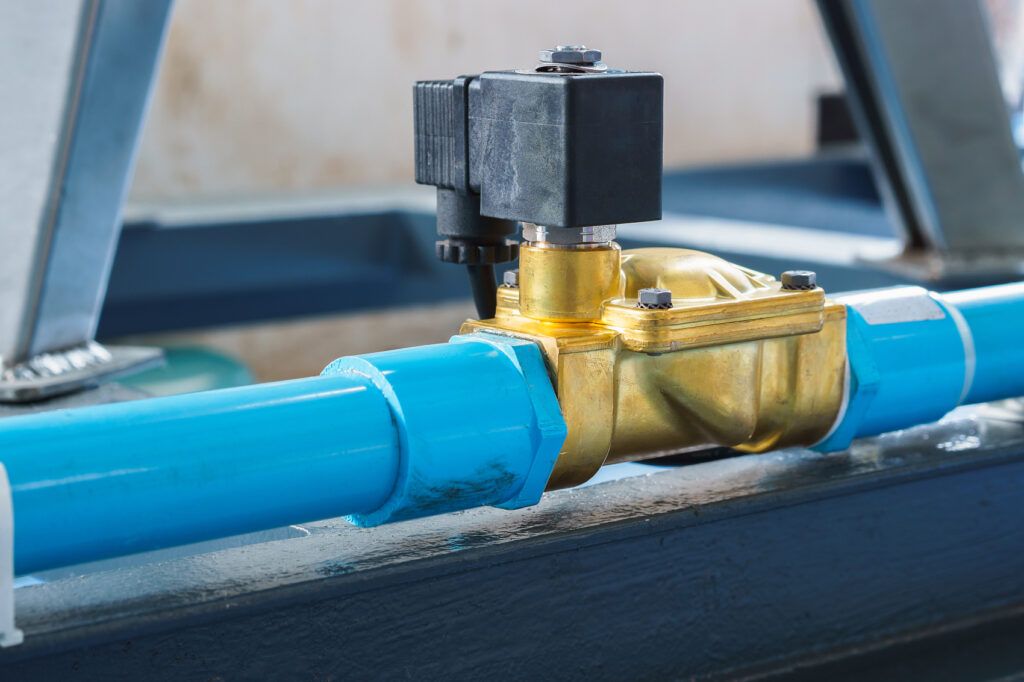Teoría de la tecnología: Soluciones industriales de automatización técnica… práctica… interesantes

En DELCO, comprendemos la importancia de la satisfacción del cliente y nos esforzamos por satisfacer las necesidades únicas de cada cliente. Como proveedor confiable de válvulas, nos comprometemos a brindar un excelente servicio al cliente y productos de alta calidad para garantizar un rendimiento y una longevidad óptimos. Al elegir a DELCO como su proveedor de aire de control de confianza, puede beneficiarse de conjuntos de válvulas personalizados diseñados específicamente para satisfacer sus requisitos, mejorando la eficiencia y reduciendo el tiempo de inactividad.
¿Por qué las válvulas solenoides no funcionan después de ser energizadas?
Válvulas solenoides play a crucial role in hydraulic and fluid systems, but they may sometimes fail to operate properly after being energized. These failures can result from a variety of issues, and understanding the common causes can help in diagnosing and addressing the problem. Below, we’ll explore some of the most frequent reasons for solenoid valve malfunctions and the solutions to correct them.
1. Inconsistent Fluid Pressure or Pressure Differential
One of the most common reasons for solenoid valve failure is inconsistent fluid pressure or insufficient pressure differential. Solenoid valves are designed to operate within specific pressure ranges, and if the actual operating pressure deviates from the required range, the valve may fail to function correctly. This can result in the medium not being able to pass through the valve, which hinders the system’s performance.
Solution:
Ensure that the fluid pressure or pressure differential is within the specified range for the solenoid valve. If necessary, adjust the system’s pressure or replace the valve with a model that matches the working conditions more accurately.
2. Incompatible Fluid Viscosity or Temperature
Another common issue is when the viscosity or temperature of the fluid does not match the solenoid valve’s design specifications. This mismatch often occurs due to improper valve selection or a change in the fluid’s properties over time. For instance, if the medium’s viscosity increases or temperature exceeds the valve’s operational limits, it may cause the valve to malfunction.
Solution:
Review the fluid’s properties and ensure that the solenoid valve is compatible with those conditions. If the properties of the fluid can be adjusted (e.g., reducing viscosity or temperature), do so. If not, consider replacing the valve with one suited for the new fluid characteristics.
3. Dirt and Impurities in the Valve Components
Dirt, debris, and other impurities can cause serious issues within the solenoid valve. These contaminants often accumulate around the valve core and the moving iron core, interfering with the valve’s normal operation. When these particles obstruct the components, the solenoid valve may fail to open or close properly.
Solution:
Regularly clean the interior of the solenoid valve to remove any accumulated dirt or debris. Installing a filter valve before the solenoid valve can help prevent contaminants from entering the system and causing issues. Regular maintenance is key to ensuring smooth operation.
4. Blockages in the Filter or Pilot Valve Hole
The filter or pilot valve hole in front of the solenoid valve can become blocked due to excessive impurities in the fluid. A clogged filter or pilot valve hole can prevent the valve from functioning correctly, leading to failure or erratic operation.
Solution:
Check the filter and pilot valve holes regularly and clean them as needed. Inspect the medium entering the valve for impurities, and ensure that proper filtration systems are in place to prevent blockages from occurring.
5. Excessive Operating Frequency or Expired Service Life
High operating frequency or extended use beyond the valve’s rated lifespan can significantly impact solenoid valve performance. Continuous operation at high frequencies can wear down internal components, while a solenoid valve past its service life may no longer respond effectively to energizing signals.
Solution:
Reduce the operating frequency if possible or replace the valve with a model that can handle higher frequencies. If the solenoid valve has exceeded its service life, it should be replaced with a new one to restore proper functionality.
6. Improper Installation, Operation, or Maintenance
Incorrect installation, improper operation, or lack of regular maintenance can also contribute to solenoid valve failures. When the valve is not installed according to manufacturer guidelines, or if it is operated outside its recommended parameters, the valve may fail to work properly.
Solution:
Ensure the solenoid valve is installed correctly, operated within its specified limits, and maintained regularly. Follow the manufacturer’s recommendations for use and maintenance to prolong the valve’s lifespan and prevent failures.
Conclusión
Válvula solenoide failures can be caused by a variety of factors, from incorrect fluid pressure and temperature mismatches to contamination and wear over time. By addressing these issues early and performing regular maintenance, operators can ensure that their solenoid valves continue to function reliably. Always consider the operating conditions, the fluid medium, and the frequency of use when troubleshooting solenoid valve issues. If the problem persists, replacing the valve with a more suitable or upgraded model may be necessary for optimal system performance.
Las comprobaciones periódicas y el manejo adecuado de las válvulas solenoides pueden reducir significativamente la probabilidad de falla y mejorar la eficiencia general de los sistemas hidráulicos y de fluidos.
¿Cómo obtener una cotización rápida para válvulas industriales?
Si tiene preguntas sobre válvulas o desea obtener una cotización, no dude en contactarnos. Le responderemos en un plazo de 6 horas. Teléfono: +86 159 8960 2972, WhatsApp: +86 159 8960 2972 o correo electrónico: marketing [email protected].
La calidad, los precios competitivos y el excelente servicio de DELCO lo convierten en el mejor socio de válvulas para ayudarlo a hacer crecer su negocio. Personalice sus válvulas, no tenemos pedidos mínimos.
En DELCO, comprendemos la importancia de la satisfacción del cliente y nos esforzamos por satisfacer las necesidades únicas de cada cliente. Como proveedor confiable de válvulas de control, nos comprometemos a brindar un excelente servicio al cliente y productos de alta calidad para garantizar un rendimiento y una longevidad óptimos. Al elegir a DELCO como su proveedor de válvulas de control de confianza, puede beneficiarse de conjuntos de válvulas personalizados diseñados específicamente para satisfacer sus requisitos, mejorando la eficiencia y reduciendo el tiempo de inactividad.
Además, nuestros precios competitivos en reguladores de presión electrónicos le permiten ofrecer soluciones de primer nivel. Como uno de los principales fabricantes de válvulas de control, nos enorgullecemos de ofrecer válvulas confiables que no solo cumplen con los estándares de la industria, sino que también contribuyen a la rentabilidad general de su negocio. Al asociarse con DELCO, puede tener la tranquilidad de saber que está tomando una decisión inteligente para el éxito a largo plazo de su empresa.



